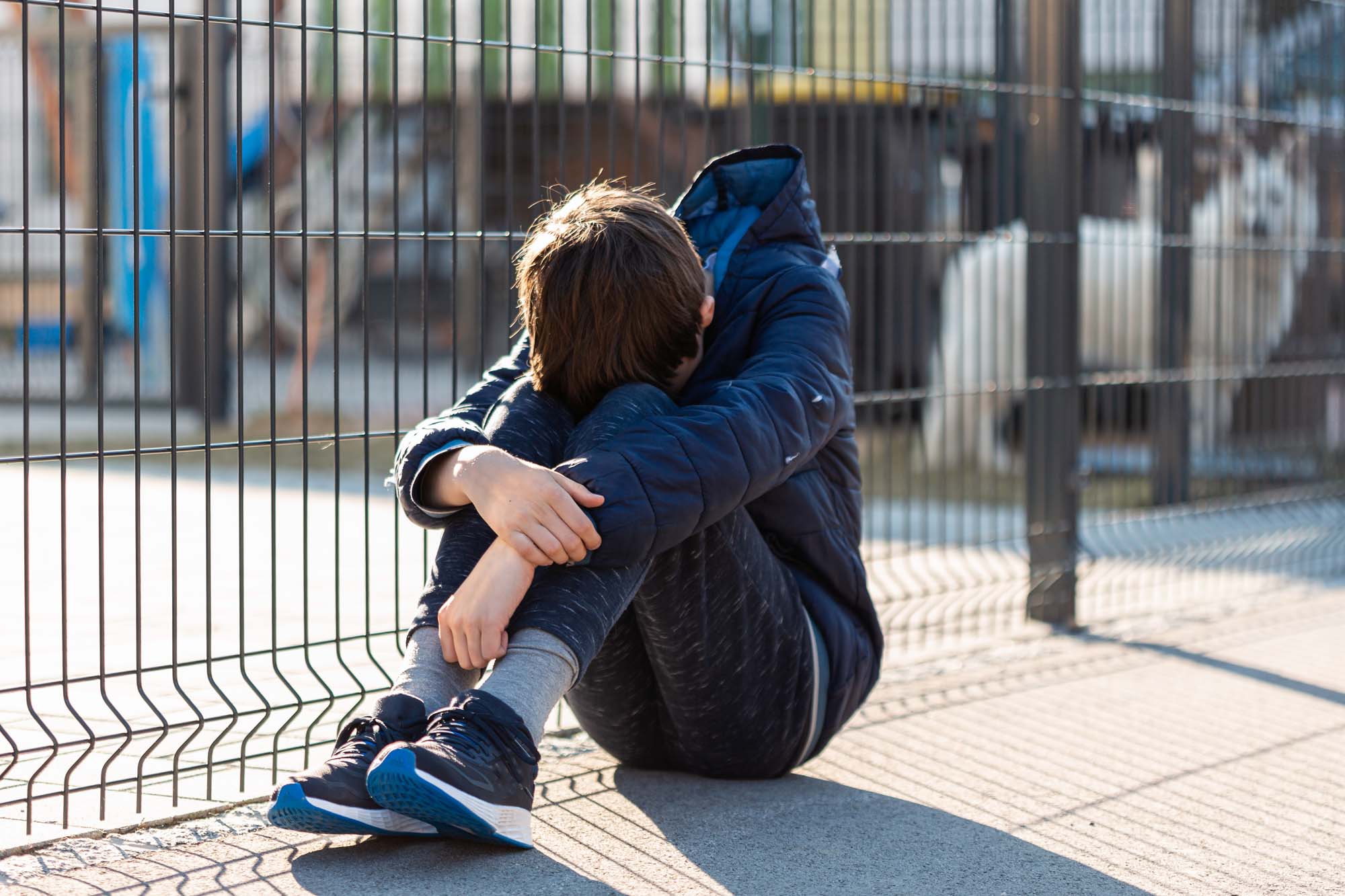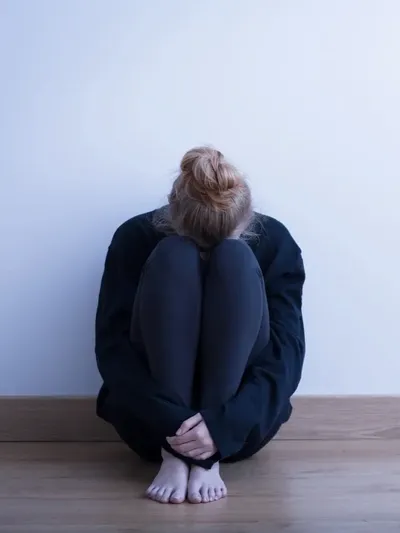Teen Trauma & PTSD
Watching your teen struggle with the effects of trauma or PTSD can leave you feeling helpless—but you’re not alone, and there is hope. At Build Bright Care Group, we understand how overwhelming it is to see your child in pain, and we’re here to help them reclaim their sense of safety, strength, and stability. Located in Los Angeles, California, our residential treatment program offers comprehensive, trauma-informed care for adolescents dealing with PTSD and trauma-related disorders. Through a blend of clinical expertise and compassionate, personalized support, we help teens heal from past experiences and build a brighter, more resilient future.
Find out if your insurance will cover the cost of treatment.
Teen Trauma, PTSD, & Stress Treatment in Los Angeles
Understanding Teen Trauma and Stressors: A Guide for Parents
As parents, it’s vital to recognize the unique challenges your teenager faces in today’s world and how traumatic experiences can profoundly impact their mental health and well-being. By fostering understanding and open communication, parents can play a crucial role in their teen’s recovery journey and promote a safe and nurturing environment for healing.
It’s important to note that experiencing trauma or stressful situations does not inevitably lead to the development of a disorder, since individual’s responses to traumatic events can vary widely. However, if a teenager exhibits symptoms consistent with trauma-related disorders, it’s essential to seek professional help from mental health professionals for assessment, diagnosis, and appropriate treatment interventions tailored to the individual’s needs.
The way in which teenagers experience trauma or stress can vary widely. It’s important to recognize that trauma is subjective, and what may be traumatic for one person may not be for another. Additionally, some teens may experience multiple traumas or ongoing stressors, further complicating their experiences and recovery process.
What Causes Trauma and Stress in Teens?
Teens can experience a variety of traumas and stressful situations, including:
Physical or Sexual Abuse:
Emotional Abuse or Neglect:
Witnessing Violence:
Natural Disasters:
Accidents or Injuries:
Bullying or Harassment:
Loss of a Loved One:
Serious Illness or Injury:
Family Conflict or Divorce:
Forced Displacement or Immigration:
What Are the Typical Symptoms of Trauma and PTSD in Teens?
Trauma disorders, including Post-Traumatic Stress Disorder (PTSD), can manifest in a variety of symptoms in teenagers. These symptoms may vary depending on the individual and the nature of the traumatic experience, but some typical symptoms of trauma disorders in teens include:
Re-Experiencing Symptoms:
Avoidance Behaviors:
Negative Changes in Mood and Cognition:
Hyperarousal Symptoms:
Hypervigilance:
Physical Symptoms:
Changes in Behavior:
Emotional Dysregulation:
Loss of Interest or Pleasure:
Disturbances in Relationships:
Why Early Intervention Matters in Teen Trauma Recovery
It’s important to note that not all teenagers who experience trauma will develop PTSD, and the severity and duration of symptoms can vary. If a teenager is experiencing symptoms of trauma, it’s essential to seek professional help from a mental health provider experienced in treating trauma-related disorders. Early intervention and appropriate treatment can help teens effectively cope with trauma and improve their overall well-being.
Types of Trauma & Stressor-Related Disorders in Teens:

Post Traumatic Stress Disorder (PTSD)
PTSD is a diagnosed in adolescents who have experienced, witnessed, (or learned about a traumatic event that occurred to a loved one) and subsequently exhibit strong trauma symptoms that persist for more than one month, causing significant distress or impairment in daily functioning.
Reactive Attachment Disorder (RAD)
RAD is an uncommon early childhood diagnosis that may develop in children who have experienced severe neglect, abuse, or disruptions in their early caregiving relationships. Symptoms impair the ability to relate interpersonally to others and to function in different areas of life.
Acute Stress Disorder (ASD)
ASD occurs in response to a traumatic event and involves acute traumatic symptoms (similar to PTSD). However, this diagnosis is given when the trauma symptoms persist for a minimum of three days but not longer than one month. If the symptoms last longer, a diagnosis of PTSD may be more appropriate.
Unspecified Trauma and Stressor Related Disorder
This diagnosis applies when there are significant trauma and stressor-related symptoms present that do not meet the criteria for any specific disorder, due to either insufficient information or unclear symptom patterns. It allows for clinical recognition of distress even when a precise diagnosis cannot yet be determined.
Other Specified Trauma & Related Disorder
This category includes disorders that do not fully meet the criteria for other trauma-related diagnoses but still cause significant distress or impairment. Examples include adjustment-like disorders with delayed onset or prolonged duration, as well as complex bereavement disorders marked by intense grief and mourning reactions.
Adjustment Disorders
Adjustment Disorders occur when a teen has difficulty coping with a significant life stressor or change, such as parental divorce, relocation, or the loss of a loved one. Symptoms may include depressed mood, anxiety, behavioral issues, impaired social functioning, and physical complaints like headaches or stomachaches.
Desinhibited Social Engagement Disorder
This disorder often develops in children and adolescents who have experienced early neglect or repeated changes in primary caregivers. Symptoms include indiscriminate sociability, lack of appropriate social boundaries, overly familiar behavior with strangers, and a diminished sense of fear in unfamiliar situations.
Treatment Options for Trauma and Stress-Related Disorders in Adolescents
Possible outpatient treatments for trauma and stressor-related disorders in teens include individual therapy sessions with trauma-focused approaches, participation in therapy groups with peers, involvement in family therapy to address relational dynamics, psychiatric consultation for medication management, and incorporation of holistic therapies such as mindfulness or art assisted therapy.
These treatments can be obtained through community mental health centers, private practices, or specialized trauma treatment centers. It’s crucial for teens and their families to collaborate with mental health professionals to develop a comprehensive treatment plan tailored to their unique needs and goals for recovery.
For adolescents with severe trauma symptoms, or difficulty to function in their regular daily life, residential treatment offers a comprehensive and structured approach that can be more effective than outpatient care alone. Residential treatment offers a combination of medication management, individual therapy, group therapy, and family therapy. They also focus on educational support, life skills training, and coping strategies to manage symptoms. Residential treatment can be particularly beneficial for teens who have not responded to outpatient treatments or who need a more intensive level of care.
Negative Effects and Risks of Trauma and Stress in Teens
Mental Health Challenges
Impaired Relationships
Academic Difficulties
Risk of Self-Harm or Suicide
Disrupted Developmental Milestones
Physical Health Consequences
Increased Risk of Substance Abuse
Social Isolation
Legal and Behavioral Issues
Residential Treatment for Teen Trauma & Stress
At Build Bright Care Group in Los Angeles, our residential treatment program for teen trauma and stress provides a structured, supportive environment where adolescents can fully focus on healing. With 24/7 access to experienced mental health professionals, teens receive immediate care during difficult moments and benefit from a comprehensive, trauma-informed approach.
Our program combines individual therapy, group sessions, medication management, and experiential therapies, all tailored to each teen’s unique needs. In this safe, real-world setting, teens build essential coping skills and learn to manage symptoms of PTSD and trauma-related disorders.
Here, teens connect with peers facing similar challenges—fostering community and reducing isolation—while parents gain peace of mind knowing their child is receiving constant, compassionate care.
We’re here to support your family. Contact Build Bright Care Group today to learn how our residential program can help your teen begin the journey to lasting recovery.
Help Is Just a Call Away
If your teen is struggling—emotionally, behaviorally, or in ways you can’t quite explain yet—we’re here to listen and support you. At Build Bright, we specialize in compassionate, comprehensive residential care for adolescents facing a wide range of mental health challenges.
Our Comprehensive Adolescent Care for Trauma & PTSD

Individual therapy
Family therapy
Group therapy
Psychiatric services
Medication management
Mindfulness
Journaling
Coping skills groups
Yoga
Addictions & use of technology groups
Music therapy
Art assisted therapy
Physical fitness
Life skills groups
Surf therapy
Outings & recreational activities
School & IEP support
Get to Know Build Bright


Our Program
We're changing lives with our creative program, sparking innovation and empowering individuals along the way.

Our Approach

When Should You Consider Residential Treatment?
We help you determine the right time for residential treatment consideration.
Frequently Asked Questions
How are PTSD and other trauma/stressor-related disorders diagnosed in teens?
What are the risks of trauma and stress disorders not being treated?
How can I support my teen with trauma and stress disorders?
How can I support my teenager with anxiety at home and at school?
Are medications safe for teens with trauma and stress related disorders?
What lifestyle changes can help PTSD/trauma/stress disorders?
Are PTSD and other trauma/stress disorders curable?
Do you accept health insurance?
Teen Trauma Treatment Blog
What is Trauma-Informed Care? Trauma-informed care is a new way of understanding and treating mental health issues. Instead of asking "What's wrong...
Parental Alienation Syndrome (PAS) is a challenging family dynamic that can deeply affect your teen's emotional well-being. When one parent actively...
Childhood trauma in teens is more than just an emotional hurdle—it’s a serious public health concern that can shape a young person’s future in...










